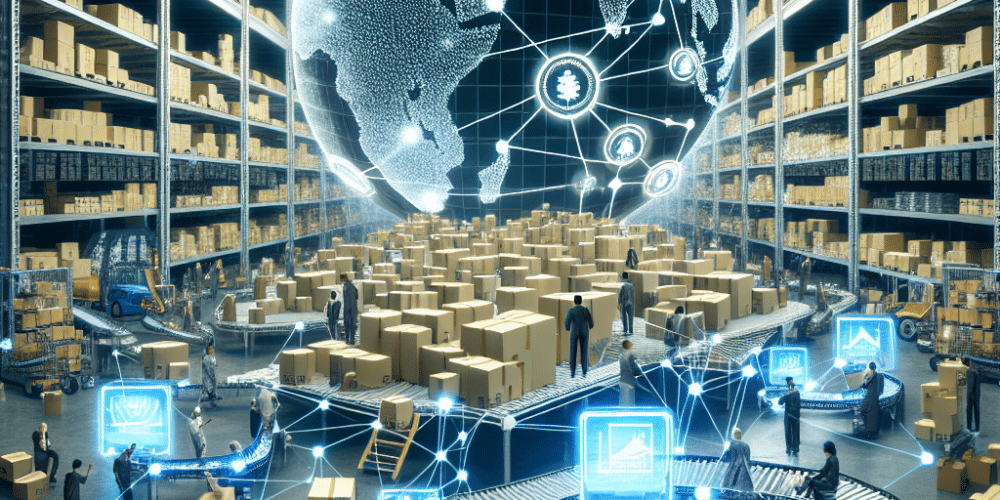In an unprecedented move, several leading global retail corporations have announced their adoption of blockchain technology to optimize their supply chain operations. This development marks a significant milestone in the retail industry’s journey towards enhanced transparency, security, and efficiency.
The companies, which include household names in electronics, clothing, and consumer goods, are implementing blockchain systems to track the journey of products from manufacture to sale. This technology not only promises to enhance inventory management but also aims to bolster consumer trust by providing a transparent record of product origins and handling.
The shift towards blockchain-based systems in the supply chain sector has been gaining momentum, prompted by the pressing need for greater supply chain visibility and fraud prevention. Blockchain, with its decentralized and immutable ledger, offers a potent solution to these challenges, enabling companies to maintain a tamper-proof record of transactions and product movements.
A representative from one of the participating retail giants explained, “The integration of blockchain technology into our supply chain framework will allow us to verify product authenticity, combat counterfeit goods, and ensure that all compliance standards are met throughout our global operations. This will not only improve operational efficiency but also enhance customer satisfaction.”
The initiative will see the deployment of blockchain nodes across various points in the supply chain, including manufacturers, logistics partners, and distribution centers. Each node will serve as a checkpoint that confirms and records product details onto the blockchain, creating a comprehensive and verifiable trail.
Industry experts predict that this technological adaptation will set a new standard in the retail sector, prompting other companies to follow suit. “The adoption of blockchain by such significant players in the retail market underlines the technology’s value and versatility,” commented a blockchain technology specialist. “It’s a strong signal to all industries about the critical role blockchain can play in addressing some of the modern business world’s most pressing issues.”
The impact of this development extends beyond operational improvements. By leveraging blockchain, companies are also making a substantial commitment to corporate responsibility. Transparent supply chains are increasingly demanded by consumers who are concerned about environmental and ethical standards. Blockchain’s ability to provide undeniable evidence of compliance with these standards meets this consumer demand head-on, potentially transforming market dynamics where transparency becomes a key competitive advantage.
Furthermore, analysts suggest that the blockchain in supply chains can significantly speed up administrative processes, reduce the risk of human error, and cut costs by automating key operations. “Blockchain could dramatically reduce the time spent on verifying product quality and origin, which traditionally involves extensive paperwork and manual checks,” one analyst noted.
The response from the investment community has been overwhelmingly positive, with stock prices of the involved retail companies seeing an uptick following the announcement. Investors are evidently optimistic about the potential for blockchain technology to drive efficiency, reduce costs, and open up new avenues for revenue growth.
As these retail giants begin rolling out their blockchain initiatives, all eyes will be on the tangible benefits the technology may bring. Success in these early adaptations may well define the future of blockchain in retail, potentially ushering in a new era of digital transformation powered by this innovative technology.
While the full implementation of these blockchain systems will take time, the initial results from pilot tests have been promising. The retail industry’s enthusiastic embrace of blockchain may indeed herald a new chapter in how businesses manage supply chains and engage with consumers. As this technology continues to evolve, it may offer even more applications that could further disrupt and transform traditional business practices.
As the world watches, the integration of blockchain into retail supply chains could become one of the most significant technological shifts in recent years, proving that even the oldest industries can find new life through modern technology.




